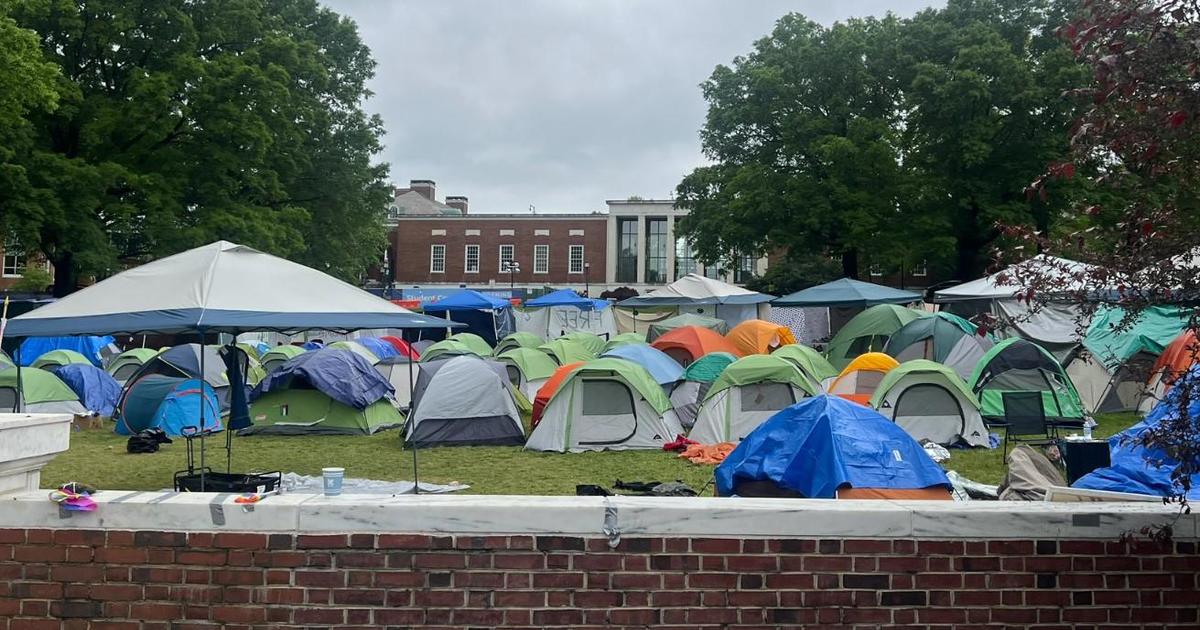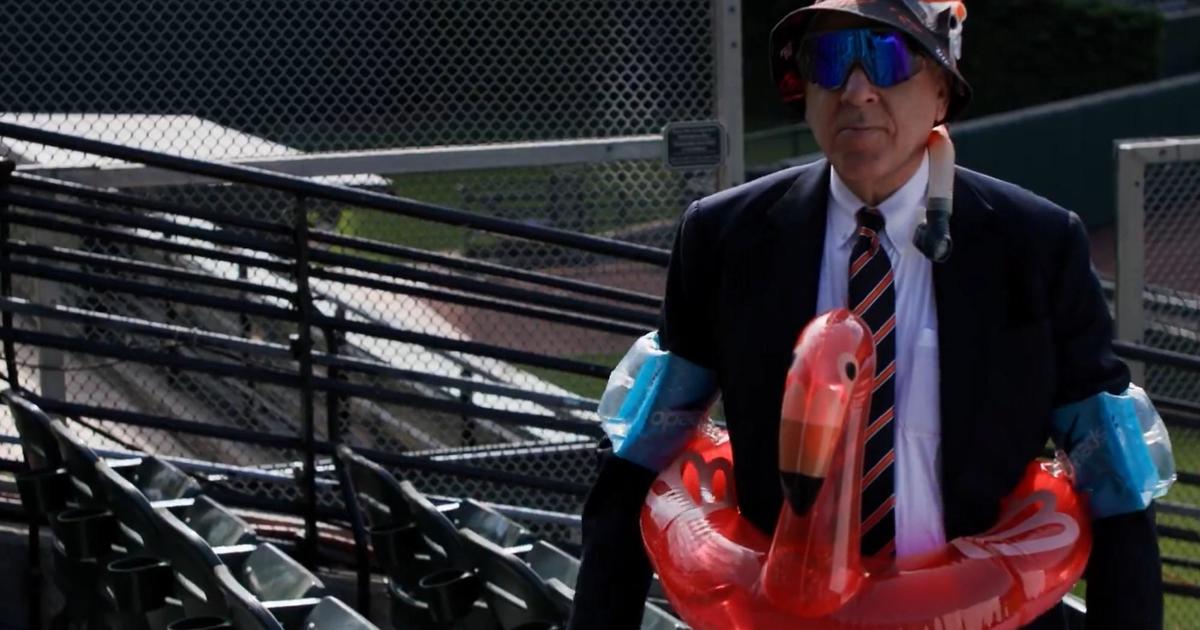'It Will Get Worse' | COVID-19 Infections, Deaths Skyrocket Heading Into Christmas Week
(CNN) -- Despite widespread pleas from doctors, many Americans are traveling this Christmas week instead of hunkering down and protecting their loved ones from possible coronavirus infection.
The US set a new record Friday for the most Covid-19 infections reported in one day: 249,709, according to Johns Hopkins University. That same day, more than 1 million travelers were screened at US airports, the Transportation Security Administration said.
Maryland issued a emergency order discouraging nonessential travel out of state and limited gatherings more as it saw increases in hospitalizations several days in a row and broke records for the number of deaths reported over the last few weeks after the Thanksgiving holiday.
In just the past week, more than 18,000 people died from Covid-19 in the US. And many hospitals are filling up fast.
"Unfortunately, it will get worse because we still are experiencing the outcome of the Thanksgiving holiday and gatherings," said Moncef Slaoui, chief scientific officer for Operation Warp Speed -- the federal government's vaccine initiative.
"And unfortunately, there may be more over the Christmas holiday. So there will be a continuing surge."
Some good news is on the horizon, as the Moderna Covid-19 vaccine is expected to be deployed to health care workers
"There is light at the end of the tunnel. There are now two vaccines that are approved (for emergency use authorization). They are incredibly effective and efficacious."
"So hopefully we will get better ... after getting worse."
Where the Moderna vaccine will likely go
At any moment, the director of the Centers for Disease Control and Prevention could give the green light for Moderna's vaccine to be given to the public.
The first public doses of the Moderna vaccine will "most likely" be administered Monday morning, Slaoui said.
Distribution of the Moderna vaccine has already started, said Army Gen. Gustave Perna, chief operating officer of Operation Warp Speed.
Just like the Pfizer-BioNTech vaccine, the Moderna vaccine has received emergency use authorization from the US Food and Drug Administration.
But unlike the Pfizer/BioNTech vaccine, the Moderna vaccine doesn't require ultra-cold storage and can be transported at regular refrigeration temperatures -- making it more suitable to rural areas and places that don't have special deep-freeze facilities.
More than 6 million doses of Moderna's vaccine will be shipped to more than 3,200 sites where they will be administered -- far more than the 636 sites that Pfizer's vaccines were shipped to.
As for the Pfizer-BioNTech vaccine, more than 272,000 doses had been administered as of Saturday, according to the CDC.
Recipients of either vaccine must get two doses. The Pfizer-BioNTech doses should be spaced 21 days apart, and the Moderna vaccine should be spaced 28 days apart.
But excitement about a second vaccine must be tempered by a huge caveat: only high-priority groups (such as health care workers and residents of long-term care facilities) will get vaccinated first.
Most Americans will still have to wait months for a vaccine
The US should have enough Covid-19 vaccine for 20 million people this month and 30 million people next month, said Dr. Nancy Messonnier, director of the US Centers for Disease Control and Prevention's National Center for Immunization and Respiratory Diseases.
In other words, most Americans won't be able to get a Covid-19 vaccine until sometime in 2021.
Until then, Americans must take serious precautions to prevent more long-term illnesses and deaths from Covid-19.
Dr. Carlos del Rio, executive associate dean of Emory University's School of Medicine, said he agreed with that assessment.
"We're just simply saying, 'Well, we're getting vaccine.' But the vaccine is coming way too late for thousands of people who will die before we get the vaccine distributed widely," del Rio said Thursday.
"Transmissions (of the virus) are actively happening, and I think before the end of the year, we may be getting close to 4,000 deaths a day," del Rio said.
CDC gives new advice for those with a history of allergic reactions.
After several reports of allergic reactions to the Pfizer-BioNTech vaccine, the CDC now suggests those who have ever had a severe allergic reaction to an ingredient in a Covid-19 vaccine should not get that vaccine and consult a doctor.
A reaction is considered severe if it requires the person to be treated with epinephrine, or they need to be hospitalized. Such reactions can include shortness of breath, a closing of the throat, nausea and dizziness.
If someone gets a severe allergic reaction after the first dose of a Covid-19 vaccine, they should not get the second dose, the CDC said.
Those who have severe allergies unrelated to vaccines or injectable medications can still get a Covid-19 vaccines, the agency said.
The CDC also said those who have a history of allergies to any oral medications or people with milder reactions to vaccines can also still get vaccinated.
Vaccine providers should monitor all people for 15 minutes after getting the vaccine for any possible reaction, and those with a history of severe allergic reactions should be monitored for 30 minutes, the CDC said.
It said all vaccine providers should have epinephrine, antihistamines, stethoscopes, blood pressure cuffs and timing devices on hand to treat and monitor reactions.
The CDC also said severe reactions need to be sent to the national Vaccine Adverse Event Reporting System.
But so far, the percentage of vaccine recipients who had a severe reaction is extremely low.
Of the 272,000 Pfizer-BioNTech doses given as of Saturday, only a handful serious allergic reactions have been reported.
Several health care workers at Providence Health Alaska suffered adverse reactions, spokesman Mikal Canfield said Saturday. The reactions were not life-threatening.
In total, five people in Alaska had adverse reactions across the state.
In suburban Chicago, adverse reactions in four employees caused a hospital to temporarily stop its Covid-19 vaccination program for frontline workers.
Their symptoms included tingling and elevated heart rate shortly after receiving the vaccine, Advocate Aurora Health said in a statement obtained by CNN affiliate WLS.
The health care company noted those four workers represented "fewer than 0.15% of the approximately 3,000 who have so far received vaccinations across Advocate Aurora Health."
The health care system said the program will resume Sunday, but with increased time to monitor people after getting the vaccine.
US Surgeon General Dr. Jerome Adams said allergic reactions to vaccines are "not abnormal or unexpected."
"The system is working," Adams said. "We are recognizing and catching these very, very rare side effects."
The-CNN-Wire
™ & © 2020 Cable News Network, Inc., a WarnerMedia Company. All rights reserved.



